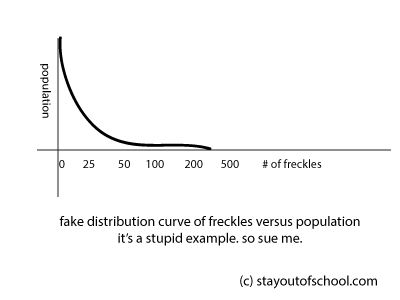Redistribution of Ethics
When I talk to people about the issues I care about, I get a lot of "right! RIGHT! So what do you suggest we do?"I have to admit that I am not always a how person when it comes to big thinking. I am a why person.Earlier today on my personal Facebook page I posted this little five minute video about perception of wealth in the United States and who's holding it. I'd suggest watching it because it's compelling (albeit a little biased. Put on your critical thinking cap, partner.) I put it up because I thought it was an interesting launching point for conversation about what we value about capitalism and some of its pitfalls rather than to make some sort of political statement, but there seems to be confusion about my intentions right down to people like, say, My Dad.Anyway, I'm sure I'm about to annoy someone, but whatever. I'm still piecing this together for myself, and I want to talk about it in a thorough way and in ways that matter to me. It's a reflection of what we care about, of our priorities as a society and a culture.
Distribution: This Word, I Do Not Think It Means What You Think It Means
Sometimes I forget that I have an economics degree, and while I'm by no means an economist, it at least affects how I think about this sort of thing.So first let's tackle this issue of the word "distribution" and worse, omg, "redistribution."Honestly the knee-jerk implication of these words has never really sunk in for me until today. Okay, so, in economics (or stats) when we talk about "distribution along a curve," we're talking about arrangement. We're not talking about about someone doling stuff out or someone going out and taking stuff from one group and giving it to another.For example, we could do a distribution curve on the number of freckles people have. Freckles: you just have 'em or you don't. Maybe you have a few. Maybe you have a squillion. Since the world is not comprised mostly of white people who get a lot of sun exposure (surprise!), if I were a betting woman I'd guess that very much of the population doesn't have many. Whatever. We ccould take a snapshot of everyone's freckles today and look at the distribution of freckles across humanity in graph form.
Maybe it would look something like this:
Anyway, so distribution just means a look at what everyone has or who has a particular characteristic, stuff like that. You can show a distribution of cicadasin North Carolina over a 17 year period. Whatever it is, the point is, it's just Where Stuff Is.Now, when we talk about economics and talk about Markets, the tricky thing is that markets are driven by human behavior. Everyone gets so steamed talking about this because inherent to the conversation are issues that are fundamentally driven by these real, human, ethical elements:
- work
- reward
- pride
- greed
- magnanimity
- struggle
- relaxation and rest
- personal satisfaction
- the common good.
Of course everyone is primed to get ticked off, because every one of us is on a sliding scale of personal judgement with each of these things and it's so easy to get angry at other people about where they stand--or to rationalize where we ourselves stand.
Now bring in the word "redistribution."
So, economically, when we talk about redistribution, we're not always talking about the pure practice or implementation of redistributing stuff, taking stuff from Susan and giving it to Sally. This is where the how always comes in: "So how are you going to redistribute all this wealth? Is the IRS going to do it?"Sometimes we're merely talking about the theory behind these perceived inequities and giving consideration to what might right a distribution along a curve that looks undesirable for whatever reason. Moreover, it involves thinking about why certain distributions feel intuitively wrong and what factors might influence those distributions.In this regard, economics is a very philosophical practice. ::trumpets sound::
Fine. So the real question is What Is Inequity?
This is where things get off the rails and why people fight like religious zealots over economic policy. At the end of the day, questions of distribution of wealth are real questions of value, about human value, about the value of our time, about what we find valuable in our lives, and about the value of what we as individuals are able to produce.It's also very much about the social contract.
A Word About T. Paine
So, when it comes to Social Contract theory (Thomas Paine, Rousseau, John Locke, et al), the fundamental thing that they each come back to is this idea of exchange between the population and its government. In theory then, here in the United States, that would be a contract between each of us as citizens since We The People theoretically are the government. (I know, I know.)Part of the way that our contract works, the way that we retain respect for our own transactions, the reason we are willing to exchange and trade with each other on this very human level, is because implicit in exchange and trade is the idea that both sides are receiving value. Otherwise, and here comes that word, things don't seem fair.I think that's why everyone is so flipped out about this 1% thing. I can only talk about myself, but I don't harbor resentment towards a family of brothers that builds a billion dollar business from scratch. If they want to shuttle the whole family around to football games on a private jet I just don't care. I don't get particularly mad about highly paid CEOs--but maybe I should. That's for another day.Today I just want to hit on this one key point that arguably feeds into the folks on the graph holding the stacks of money in the five minute video.Full disclosure: this is not a personal character indictment of ghost traders, hedge fund folks, etc. I have accepted bottles of champagne from these folks and may have, at one point or another, kissed one or two of them.
Maybe We Just Don't See This As Valuable. Can Anyone Prove That It Is?
When I start to feel like there is "inequity" going on, when something just isn't sitting right, and I begin to feel like my social contract with other earners has been violated, I realize that it always comes back to the lack of value that I am perceiving in the banking industry, particularly in this idea that that there are people making unthinkable quantities of money from developing algorithms that essentially help them gamble and profit from... nothing. I find that I bristle because I do not see the social value in developing an algorithm that for all intents and purposes turns the bank into its own mint.The thing is, from an individual market standpoint where I have to work to get my share of the pie, if bankgambling is such a profitable thing to do, it would make sense, then, for me to stop what I'm doing and go write algorithms for a big bank.Usually, fundamentally, we are okay with someone being paid to do something that we find valuable. We don't care what it is: we'll pay for physician's services. We'll pay for Teddy Ruxpin. We don't really harbor resentment towards Mattel for making said Teddy Ruxpin, save for whatever [coughoverratedcough] value it had for our kid in 1988.The point is, at least when we are talking about redistribution of the wealth generated by brilliant banking gamblers (and that's what they are), we may feel particularly angry because it feels like no value is generated in their acquisition of the money except for the algorithm itself--in this way, it's sort of like he's designed a very brilliant money tree that only he has access to. Moreover, there feels like no way to get that money back into the market in a way that we can engage with in a meaningful way.(Hey, Elizabeth, are your clients sometimes hedge fund folks? Why yes. Yes they are.)That being said, in no way do I have any sort of policy ideas about this, nor have I convinced myself that I'm totally right, but I know that it's illegal for me to copy and print money--even if my money-printing machine is brilliant and inscrutable and hidden away from the masses.At this gut level, at least for me, playing with money to earn more money, and then federally subsidizing those private corporations who are largely in business to do so to what is beginning to trend towards the detriment of the group, towards the real, palpable decline of the middle class, well, that's when we have to start talking about our values.Maybe I can suggest a how. Maybe it shouldn't be legal.




